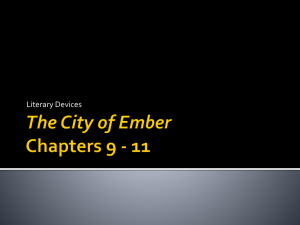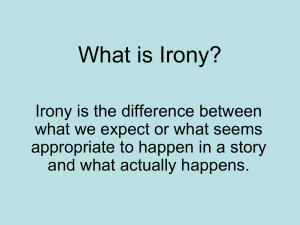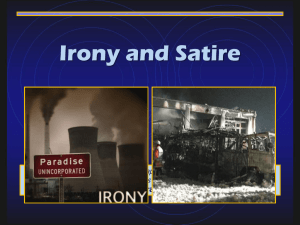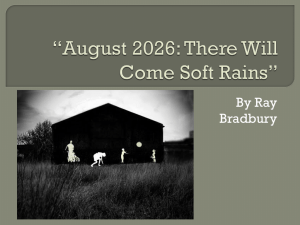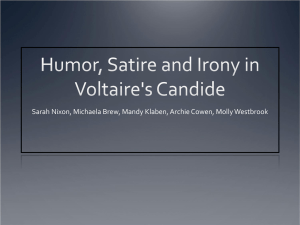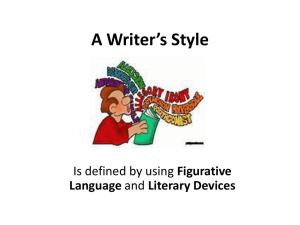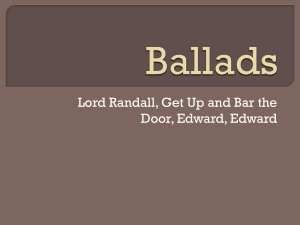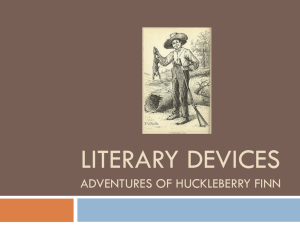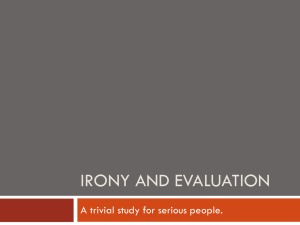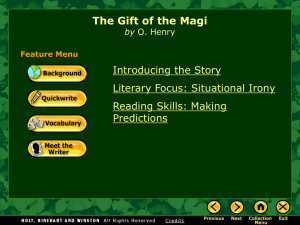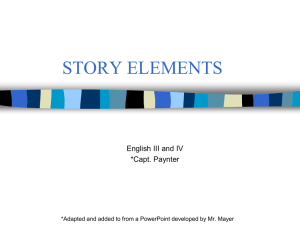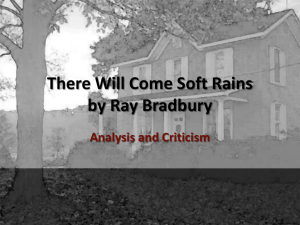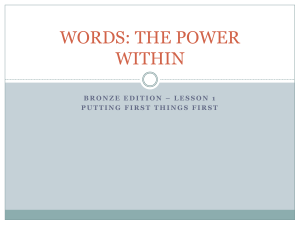Irony
advertisement
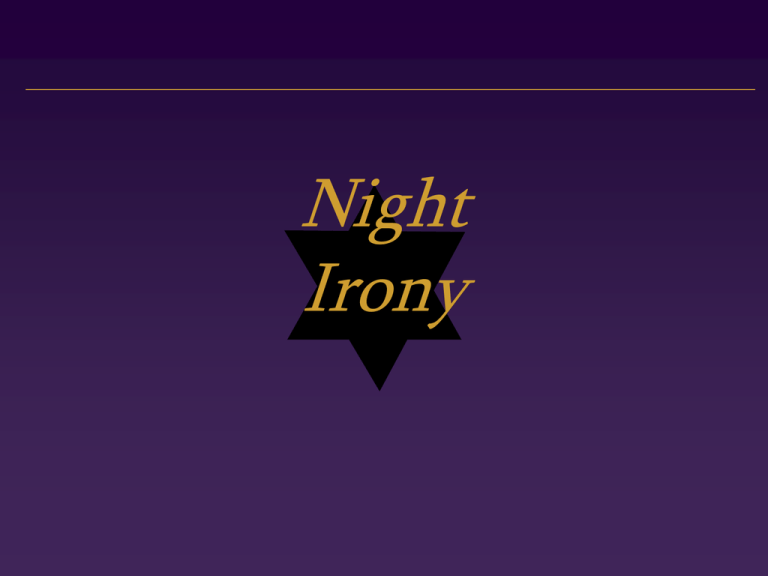
Night Irony Verbal Irony A contradiction of expectation between what is said and what is meant – Juliet is upset at being told that her father has promised her hand in marriage to Paris rather than Romeo, who she loves. She has fully made up her mind to be married to Romeo, so she ironically states to her mother "...I will not marry yet; and, when I do, I swear it shall be Romeo, whom you know I hate, rather than Paris ..." Situational Irony A contradiction of expectation between what might be expected and what actually occurs often connected to a fatalistic or pessimistic view of life – An example would be a man who takes a step aside in order to avoid getting sprinkled by a wet dog, and falls into a swimming pool." (Lars Elleström, Divine Madness. Bucknell Univ. Press, 2002) Irony: What kind? “…we saw the barbed wire of another camp. An iron door with this inscription over it: ‘Work is liberty!’ Auschwitz.” Irony: Verbal Literal meaning: Work will set you free Ironic meaning: Prisoners are worked to death as slaves Irony: What kind? “Three days after the liberation of Buchenwald I became very ill with food poisoning. I was transferred to the hospital and spent two weeks between life and death.” Irony: Situational Literal meaning: Elie almost dies of food poisoning Ironic meaning: After near starvation in the concentration camps, he is nearly killed by food Irony: What kind? “Like the leader of the camp, he loved children.” Irony: Verbal Literal meaning: The camp officer cares for children Ironic meaning: He is a pedophile Irony: What kind? “I’ve got more faith in Hitler than in anyone else. He’s the only one who’s kept his promises, all his promises to the Jewish people.” Irony: Verbal Literal meaning: The prisoner trusts Hitler Ironic meaning: Hitler was keeping the promise of killing Jews Irony: What kind? “The passengers on our boat were amusing themselves by throwing coins to the natives…I suddenly noticed that two children were engaged in a death struggle…I turned to the lady. ‘Please,’ I begged, ‘don’t throw any more money in!’ ‘Why not?’ she asked. ‘I like to give charity…’” Irony: Verbal/Situational Literal meaning: lady throws money to children Ironic meaning: She thinks this is charity though it causes the children to try to kill one another Irony: What kind? “My father took his arm. And Meir Katz, the strong man, the most robust of us all, wept….It was now that he cracked up. He was finished, at the end of his tether.” Irony: Situational Literal meaning: Meir Katz loses his will to live Ironic meaning: The strongest man cracks under the brutal hardships while the weakest continue to survive Irony: What kind? “It’s a shame…a shame that you couldn't have gone with your mother.” Irony: Verbal Literal meaning: There are wishes for son to be with his mother Ironic meaning: Most mothers and children were immediately gassed Irony: What kind? “On we went between the electric wires. At each step, a white placard with a death’s head on it stared us in the face. Literal meaning caption: ‘Warning. Danger of death.’” Irony: Verbal Literal meaning: The sign warns the prisoners of the electric fence Ironic meaning: In camp death surrounds them in many forms--a camp was designed to kill them Your turn Find an additional example of irony from the book. Be prepared to share it with the class and explain whether it is verbal or situational.

